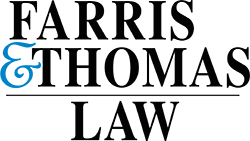Drivers in North Carolina get pulled over and issued citations by police officers every day. Most motorists make the immediate decision to pay those citations rather than fighting the matter in traffic court. After all, the fine associated with traffic citations is often relatively low, and people may think that it is cheaper to pay the fine than to take the matter to court.
That oversimplified approach actually leads to unfavorable outcomes for many North Carolina drivers. After all, the traffic ticket isn’t the only cost generated by the citation. Motorists also have to consider the impact that pleading guilty to a traffic violation could have on their insurance rates. Insurance providers typically integrate risk factors, like someone’s traffic record, into the process of calculating how much to charge a driver for coverage. North Carolina also has a program that may inspire a mandatory increase in insurance costs.
How the Safe Driver Incentive Plan works
The North Carolina Safe Driver Incentive Plan doesn’t apply to standalone traffic tickets but instead to tickets issued for at-fault collisions. Typically, someone issued a citation that declares them at fault for a crash would face increased insurance premiums for three years following the incident.
The total amount of damages, the points assessed under the Safe Driver Incentive Program and the type of citation issued all determine the amount of insurance premium increase someone can expect. Someone issued a low-level speeding ticket after a crash that caused $2,300 in damages or less can expect a 40% increase in their insurance premium.
Illegal passing or tailgating could lead to a 55% increase in someone’s insurance premium. If the crash causes injury or death, the price someone pays for insurance could increase by 70%. Those accused of reckless driving, passing a school bus or excessive speeding could face a 90% insurance premium increase.
Aggressive driving or driving with a suspended license could lead to a 200% increase. Racing on a highway or speeding to avoid an arrest could lead to a 260% insurance increase. Pre-arranged highway racing, hit-and-runs that cause injury or death, drunk driving and other serious traffic offenses could increase someone’s insurance costs by 340%.
The only way to avoid those consequences is to fight a ticket and raise questions about whether the driver issued the citation was actually to blame for the violation in question. Someone who defends successfully against a traffic citation could avoid the points and insurance costs that the state might otherwise assess.

